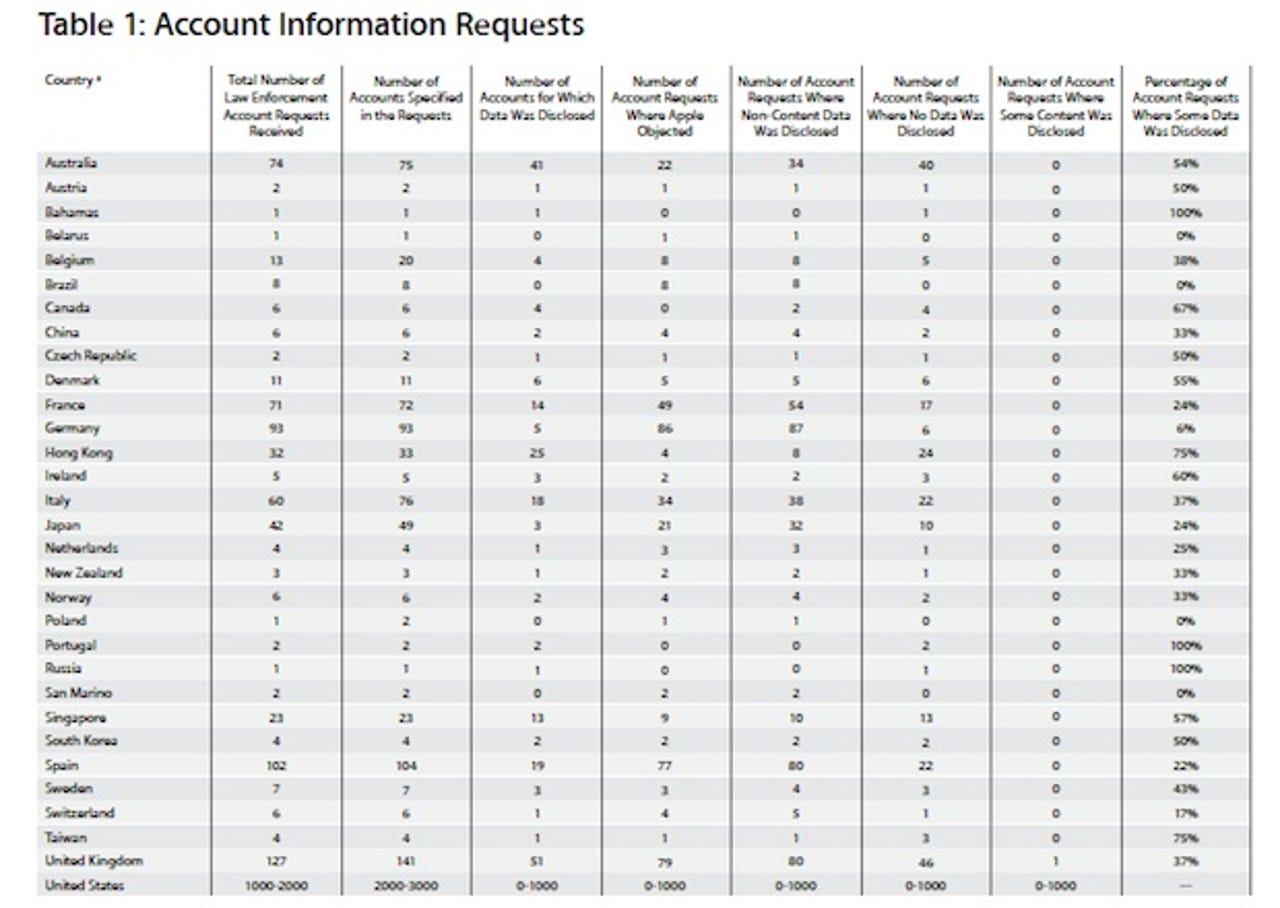Apple defends government-mandated gaps in new transparency report


Once again aiming to distance itself from the federal government in the wake of the constant NSA scandal, Apple has published a new transparency report of its own.
More about tech industry transparency reports:
The bottom line is that Cupertino wants to make it clear that it opposes Washington's "gag order" about certain national security orders.
However, before even getting to the usual numbers about data requests from various legal and government agencies by region, Apple has a number of caveats it wants to clear up first.
Here's a snapshot of just a few of them:
- Apple asserted it has "never received an order under Section 215 of the USA Patriot Act," adding that it would "challenge such an order" was served.
- Defending that its business does not depend upon the accumulated personal data of its customers, Apple revealed it does "not store location data, Maps searches, or Siri requests in any identifiable form." (The key word there is "identifiable.")
- Apple clarified its own definitions between "device requests" and "account requests." Device requests are said to refer to when law enforcement officials are looking for lost and stolen devices. Account requests concern personal information related to an iTunes, iCloud, or Game Center account.
- And this one is fairly common among most transparency reports: Apple noted that it keeps track of every request received, but not every country in the world is listed due to the fact that Apple might not have received any information requests from said governments.
Apple isn't alone in wanting to clear its name with Internet users worldwide following its implication in the National Security Agency's PRISM program that was unearthed to the public back in June. The iPhone maker was one of nine tech giants cited as sources by the federal organization's secret data mining program.
Much like Yahoo and a few others, Apple reiterated that it has filed a brief with the Foreign Intelligence Surveillance Court (FISA Court) in support of greater transparency. Apple is also planning to file a second request with the Ninth Circuit Court of Appeals, based in Northern California, "in support of a case seeking greater transparency with respect to National Security Letters."
With all that said, let's take a closer look at the numbers. Here are the big ones to know from the period covering January 1 to June 30, 2013:
- The United States, the United Kingdom, Germany, Australia, and Singapore all came up with thousands of device requests each.
- In the United States alone, there were 3,542 requests involving 8,605 individual lost or stolen devices. Apple responded to 3,110 of these requests with "some data."
- The U.S. also led with "1,000 to 2,000" account requests. Apple noted that a much slimmer number of requests concern actual account information, also stressing that it can't reveal the exact number on this metric.
- That said, these requests included questions about anywhere between 2,000 to 3,000 U.S. user accounts. Beyond that, the numbers stateside get fuzzy as Apple only specified that it offered up data about zero to 1,000 accounts.
Screenshot via Apple